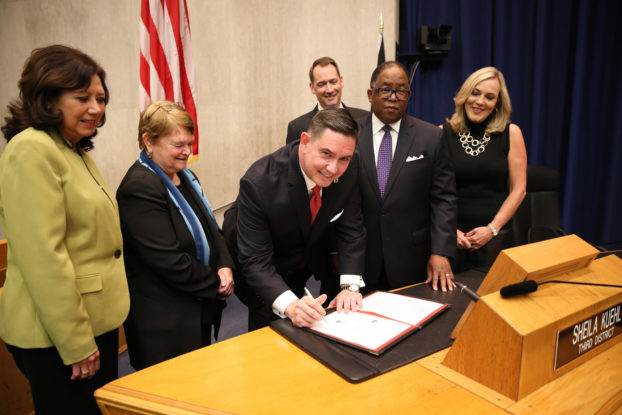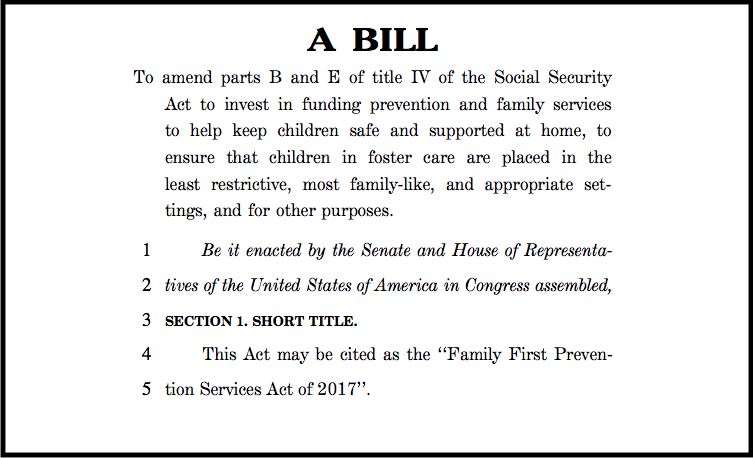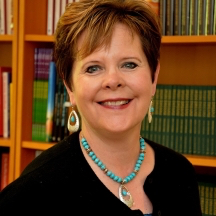In mid-April, former Senate Finance staffer-turned-lobbyist Becky Shipp sent an e-blast to dozens of key child welfare insiders inviting them to an intimate conversation focused on health care and child welfare policy.
The named participants included House Minority Leader Nancy Pelosi (D-Calif.), alongside Karen Bass, Tony Cárdenas and Judy Chu, all Democratic Congressmembers from California.
The event was organized by the Los Angeles County Board of Supervisors, which presides over a $31-billion budget and the largest foster care system in the nation. A key topic of discussion: the possibility of federal legislation that would spare the county from implementing the most significant federal reform to foster care in a generation, signed by President Trump in February.
In a stunning turn, The Chronicle has confirmed with L.A. County officials that the county has hired Shipp to lead that charge. Less than a year ago, she was a central cord in the tightly wound knot of Hill staffers behind the passage of that very law: The Family First Prevention Services Act, which was included in a massive, must-pass spending bill.
L.A and a loose coalition of populous states and counties face an uphill climb to their desired goal: a waiver that would offer a reprieve from what they see as a highly prescriptive and fiscally disadvantageous law.
Giving one of Family First’s key architects, Shipp, a central role in the growing resistance is a psychic, if pyrrhic, early win. As John Sciamanna, a long time Hill operative for the Child Welfare League of America, put it: “Maybe it’s like Nixon going to China.”
Before taking a job with the Sheridan Group, a D.C.-based policy and advocacy consulting firm, in October of last year, Shipp had worked on the Senate Finance Committee for its chairman, Senator Orrin Hatch (R-Utah). For more than three years, during the hard negotiations that led to Family First’s passage, Shipp played a key role in crafting many of the same mandates that L.A. County, her current client, would rather not be beholden to.
When interviewed in February, Shipp described how she managed her elation during her morning commute, just hours after Trump had signed Family First into law.
“I felt this flood of joy that this could happen,” she said. “I turned off the phone and sat there and savored this moment because these don’t come along that often.”
When she joined Sheridan in October, before Family First became law, she told The Chronicle that her hiring was directly related to her ability to navigate Title IV-E of the Social Security Act, the $8.2 billion entitlement that represents the lion’s share of federal child welfare spending.
“Becoming more active in the child welfare space, especially since the IV-E waivers are expiring, is a reason why I was brought on board,” Shipp said, in an e-mail at the time.
Months later, Shipp is now working to move legislation that would keep those waivers from expiring in 2019, thus excusing the nation’s largest foster care system from complying with the law she helped write.
Shipp was not immediately available to comment for this story.
While philosophically in alignment with Family First’s two major concepts – an expansion of federal funds spent on keeping families together coupled with restrictions on so-called “congregate care facilities,” which house six or more children – L.A.’s top brass, a band of advocates and California’s state-level administrators have repeatedly argued that the law will not only hurt the county and state’s bottom line, but disrupt massive state-level reform.
The Chronicle received a copy of an infographic further illuminating the specifics of L.A.’s rationale in seeking an extension of the waiver. The main points against Family First described in that document are that the prevention services are too narrowly tailored; and that, ironically, the restrictions on congregate care – which Shipp had the strongest hand in writing – are costly and overly strict.
Any state can request a two-year delay on implementing Family First Act, but without a waiver, LA and other jurisdictions like Florida and New York City would have to revert to the old Title IV-E structure. L.A.’s preference, and the job Shipp has been enlisted to accomplish, is to extend its current waiver to the entitlement that funds foster care beyond what would otherwise be allowable under Family First.

On Nov. 29, Bobby Cagle was sworn in as the director of L.A. County’s child welfare system, the largest in the nation. Photo courtesy of L.A. Department of Children and Family Services.
In a written statement sent to The Chronicle before the news of Shipp’s role broke, Bobby Cagle, director of L.A. County’s Department of Children and Family Services (DCFS), responded to a series of questions about the county’s plans in the wake of Family First.
“If the waiver is not extended, DCFS will likely be forced to reduce social worker staffing, as well as specialist services such as: mental health, court services, parent peer monitoring and education,” Cagle wrote. “Seeking federal legislation to extend the IV-E waiver is one of my top priorities. In the coming weeks, I will be joining the L.A. County Board of Supervisors to advocate in Washington, D.C., where we will speak with Congressional and Administration officials about the importance of the waiver to children and families.”
Shortly before that trip, Shipp was hired to take on the daunting task of energizing members of Congress to revisit child welfare policy after having – only months before – passed the most fundamental restructuring of foster care in decades.
On its face, L.A.’s decision to hire one of Family First’s key architects and toughest defenders to effectively undermine it could be read as shortsighted. During the early days of Family First’s conception, Shipp earned a reputation as a sharp-elbowed operative who repeatedly pushed back on the idea of extending the waivers and any opposition to Family First. Inasmuch, sources suggest that she may have tainted relationships with key advocates and players on the Hill, who L.A. will need on board to get new child welfare legislation through Congress.
Beyond these perceived relational challenges are the practical ones. Shipp’s colleagues on the Family First team who remain working in Congress have told county officials recently that all active IV-E waivers will be extended until Family First kicks in, but are unlikely afterward.
“For 2020 and beyond, there’s not an expectation that the waivers will continue,” said Laura Berntsen, the lead staffer on Family First for Sen. Ron Wyden (D-Ore.), on a webinar hosted by the National Association of Counties. When fiscal 2020 begins in October of 2019, Berntsen said, “the waivers are statutorily required to end and HHS [U.S. Department of Health and Human Services] does not have the authority to extend them any further.“
There is also the question of cost. Extending waivers for jurisdictions like L.A., New York City and Florida will likely drive up federal spending for foster care, historically a non-starter in federal child welfare policy.
But as long as the odds are, tapping Family First’s “ultimate insider” to lead the resistance on the Hill has accomplished one important goal: It has people talking about what L.A. wants. And L.A. is not alone. Shortly after Family First became law, Florida introduced state-level legislation to ask for a waiver. And in New York City, the Administration on Children and Families’ (ACS) top official said that he believes there are a number of other jurisdictions, including his own, that would likely find waivers preferable to Family First.
“We’ve certainly been talking to our Congressional delegation about the success that we feel like New York City has had under our current waiver,” said ACS Commissioner David Hansell.
This story was written by Daniel Heimpel for The Chronicle of Social Change, a national news outlet that covers issues affecting vulnerable children, youth and their families. Sign up for their newsletter or follow The Chronicle of Social Change on Facebook or Twitter.



After months of foster care articles bemoaning the evils of removing children from their families (see everything written by Wexler) along comes a federal program to do exactly that. Of course now the priority has shifted to “la county’s bottom line” ,in other words the la county bureaucracy is fighting to keep its federal handouts. Good old fashoned politics. Typical clueless witness la nonsense